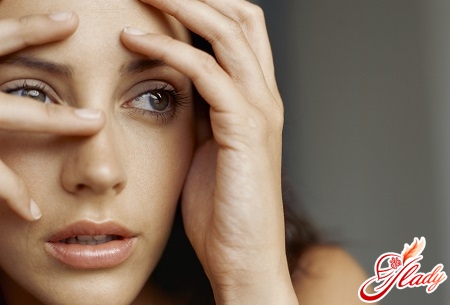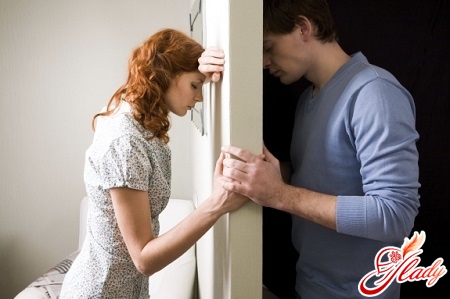 Just two hundred years ago, humanityknew practically nothing about mental disorders. People suffering from them were said to be otherworldly and were isolated. But their percentage was much lower than today. What is the matter here? The modern pace of life is associated with such wild information overloads that the nervous system simply cannot withstand this pressure. And a person begins to experience strange and borderline things, for example, fear of people or claustrophobia. In general, all sorts of obsessive fears are the scourge of modern man, almost the same as depression. It's all about the complexity of the space around us and its multidimensionality. In this article, we will consider one of the varieties of such conditions: causes, symptoms and treatment of claustrophobia - read about all this below.
Just two hundred years ago, humanityknew practically nothing about mental disorders. People suffering from them were said to be otherworldly and were isolated. But their percentage was much lower than today. What is the matter here? The modern pace of life is associated with such wild information overloads that the nervous system simply cannot withstand this pressure. And a person begins to experience strange and borderline things, for example, fear of people or claustrophobia. In general, all sorts of obsessive fears are the scourge of modern man, almost the same as depression. It's all about the complexity of the space around us and its multidimensionality. In this article, we will consider one of the varieties of such conditions: causes, symptoms and treatment of claustrophobia - read about all this below.
Symptoms of claustrophobia
What is claustrophobia anyway?In everyday life, this term is used to describe the fear of confined spaces. But, unfortunately, it is not that simple. Claustrophobia manifests itself not only in the inability to be in small rooms, but also in large crowds. This means that the person suffering from it is pathologically sensitive to the violation of the boundaries of personal space. What symptoms signal us about this phobia?
- Vegetative sensations.Like any other phobia, claustrophobia has very specific physical symptoms that manifest themselves in attacks. At this point, a person's breathing and pulse quicken, sweating increases, nausea and dizziness may occur.
- Fear.All of the above symptoms relate to manifestations of this particular emotion. The core of any phobia is fear, and claustrophobia is no exception. In some cases, a person clearly understands what exactly he is afraid of - for example, suffocating, fainting, or not being able to get out of the room - and in some cases it is simply a general feeling of strong anxiety that prevents a person from living.
- Avoidance of enclosed space. This is manifested in everything unwillingness to be in the narrow rooms, elevators, corridors, where so many people that the human body turn into pushing from all sides of the wall. Suffering from this disease in every way a person will avoid such situations: walking up the stairs, leave the door open and rarely appear in the crowded areas. Some people believe that only this can be an answer to the question of how to get rid of claustrophobia.

Causes of claustrophobia
Like all pathological fears, claustrophobiahas its reasons. True, scientists are still arguing about them, which does not allow making a qualitative breakthrough in the treatment of claustrophobia. Everything depends on the initial position of the researcher. For example, doctors and psychophysiologists believe that the disorder is, as always, based on disturbances in the functioning of the nervous system. In particular, we are talking about a reduced amygdala - the part of the brain that is responsible for the fear reaction and subsequent actions. Psychogeneticists have a slightly different view of this problem. It seems to them that a person initially carries all phobias - this is embedded in the genetic code and contributes to survival, the implementation of the instinct of self-preservation. Now most of them are no longer needed by a person, since many objects of fear have simply disappeared from our lives. However, evolution is a very slow process, and atavisms do not fall away as quickly as we would like. Well, of course, there are gentlemen psychologists who have their own theory on this matter, or rather several. In particular, there is an opinion that personal space is to blame. Each of us has it, but it is of different sizes, and the greater this distance, the higher the likelihood of a claustrophobia attack. In addition, psychologists from Emory University have found that people experiencing such a problem attach much more importance to their personal space than others. However, it is unclear what comes first here - the chicken or the egg. Psychological trauma is given a major role in this process. Judge for yourself, if a child has been in a crowded place without parents for a long time and was afraid of being abandoned, it is not surprising that in the future he will try to avoid a repeat of a similar situation. Also, if a child cannot swim and suddenly finds himself in a deep pool, suffocating, this leaves a mark on his psyche for life. Not to mention cases of violence or aggression in confined spaces, when there is a direct transfer of old circumstances to any other.
Claustrophobic treatment
To any person suffering from this disease,I want to understand how to get rid of claustrophobia forever. Otherwise, it is not life when you are forced to build each step taking into account your own pathology. The lack of normal opportunities for self-realization, satisfaction of your needs, a feeling of inferiority - all these things make a person think about treating claustrophobia. If this is you, then you absolutely need to see a psychotherapist. This doctor will help you choose an adequate treatment regimen that combines both medications and psychological help. Only in this way can you achieve a more or less high-quality standard of living. And we suggest that you supplement the course of psychotherapy by following our modest recommendations:
Well, there is no need to test yourself and createsituations that provoke a new attack. Even if for some reason you cannot completely get rid of this disease, you will be able to find a balance and "agree" with the disease so that it does not prevent you from living and enjoying life. We recommend reading:









